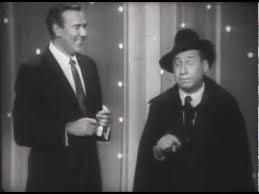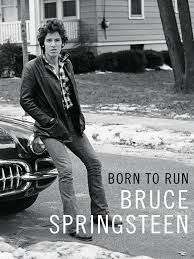Rob Reiner and Mel Brooks are at a party in the 50s. They are doing schtick. They are always doing schtick. Rob and Mel would fit in with my running group. Except that they are actually funny. Apropos of nothing Rob Reiner starts asking questions. Mel Brooks responds as the 2000-year-old man. Like the universe coming into existence out of the infinite void, an enduring routine is born.

“Did you know Joan of Arc?” Rob Reiner asks.

“Know her?” Mel responds. “I went with her.” That the Maid of Orleans had not just a boyfriend, but a boyfriend with a Yiddish accent continues to impress me as one of the funniest bits in well—2000 years. The 2000-Year-Old Man goes on, “I told her. You go invade France. I’ll have a sandwich.”

Part of the genius comes from knowing how extraordinarily committed John of Arc is. The 2000-Year-Old Man, not so much. The juxtaposition is of the 16-year-old girl who will be burned at the stake versus an elderly guy who is thinking about lunch—an epic religious quest across a continent against pastrami on rye. Joan of Arc is an inspiring leader. Legions follow her to their death. Whereas the 2000-Year-Old Man has a different outlook. “Don’t run for a bus,” he says. “There’ll always be another one.”

Who’s happier? Admittedly, comparing an actual historical figure with a fictional character may be unfair. Then what about ultra athletes? Are the winners different from you and me? Are they more intense? Are they willing to tolerate more discomfort? Are they in more psychological pain? What kind of person runs 50 miles anyway? Is their interior monologue along the lines of “I have something to prove” or “the rest of my life is miserable” or even “I hate everyone; I’ll show them all”? Do these folks keep training, keep competing, after a normal person has long since determined, “I’ll have a sandwich”?

I don’t feel strongly about this hypothesis—that winners suffer more or are damaged in some way. I’ve known some extraordinary distance athletes who seemed pretty healthy emotionally. Divorce, trauma, and stress may or may not cause more intense training and more wins. So let’s consider Bruce Springsteen.

A fairly successful guy by any measure, that Bruce. His “Born in the U.S.A” was certified platinum fifteen times and produced seven top-10 singles. Springsteen has sold over 120 million albums. (Full disclosure: I have purchased any number of these records myself.) Springsteen has twenty Grammy Awards, four American Music Awards, two Golden Globe Awards and an Academy Award. Needless to say he is in the Rock and Roll Hall of Fame. Clearly this guy should be happy, right? Content, pleased, no more countries to conquer. But he talks openly about being depressed and dissatisfied. His internal monologue remains “you’re not good enough.” He has $460,000,000, but is overwhelmed with self-doubt. The only time he can stop the “monkey chatter” in his brain is when he is crowd surfing, being held aloft on the hands of adoring concertgoers. He apparently performs four-hour concerts not because he needs the money, not even because he appreciates the devotion, but because it’s the only time he can turn off his brain, stop the negative self talk. Couldn’t he just be content with what he has already accomplished? Couldn’t he just go have a sandwich?

Robin Williams, Marilyn Monroe, Anthony Bourdain, Kate Spade. Why are successful people checking out, making that final curtain call? Because they’ve done it all? Or because their accomplishment and their misery both stem from the same cause—a negative sense of self. “You need to work harder” may occasionally produce accomplished adults. More frequently the damage done to children results in lifelong sadness. “You’re not good enough” is a brutal message for parents to communicate to kids.

I’m not arguing against success, accomplishment, winning. Nor am I covering familiar ground—the negative consequences of focusing on being Number One. (For one of my previous satirical pieces, click here.) My thrust here is that fundamental contentment comes from having a healthy sense of self. And healthy sense of self does not come from accomplishment. Nor can I be forced to feel good about myself. Telling me that I’m smart (or beautiful or competent or accomplished) is as useful as telling me that I pitched the seventh game of the World Series. I feel pretty confident that I would remember that game had I been on the mound. My own insight into who I am is what matters. What your kids think of themselves trumps what their parents say.

I’m not sure that I need my daughter leading an army. I’m not sure I’m invested in her winning an ultra event. Whether she sells a million records or stars in the next big film is up to her. What I desperately want, to the contrary, is for her to develop a healthy sense of herself. I want her to feel good about herself—whether she’s invading France, pitching the seventh game of the World Series, syndicating her cooking show, or having a sandwich.



One thought on “The 2000-year-old Man”
Yes. All true. In your old age — excuse me, in your maturity and with the wealth of knowledge and wisdom that has come to you — you are becoming almost Buddhist in sensibility.